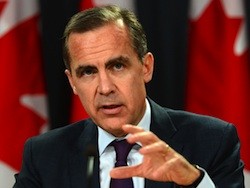
Kathryn McDonald became head of sustainable investing at AXA Investment Managers’ Rosenberg Equities in May last year in order to ensure that environmental, social and governance considerations were integrated into all of the unit’s equities portfolios by the end of 2017. She had previously been director of investment strategy at AXA IM Rosenberg Equities since 2014, having joined the group in 1999. AXA IM is also integrating ESG analysis across its investment platform and in September the group made a raft of hires to strengthen its responsible investment capabilities.
McDonald told Markets Media that fund managers can make an economic case to integrate ESG, as well as helping to slow global warming.

Kathryn McDonald, AXA IM Rosenberg
“Our argument is economic, and is as focused on upside as downside,” she said. “Some ESG metrics point us toward opportunities for jobs and GDP growth while also helping mitigate climate change.”
AXA IM Rosenberg Equities has been managing portfolios that take ESG factors into account since the mid-1990s. At that time asset managers focussed on exclusions, such as not investing in weapons manufacturers, but the market has become more sophisticated in monitoring ESG factors.
Rosenberg took the strategic decision last year to integrate ESG in all its equity strategies. McDonald explained that Rosenberg’s ESG-integrated portfolios have lower carbon emissions, no tobacco and avoid serial offenders. A monthly committee debates whether the firm should stay invested or divest.
Returns
McDonald continued: “Before incorporating ESG in all our strategies we found there was very little difference in returns between ESG and non/ESG portfolios. In fact, ESG slightly outperformed vanilla portfolios.”
In the UK, Hermes Investment Management published research this month that showed a statistical link between social practices and a company’s performance. The study, ESG Investing: A Social Uprising, found that companies with good or improving social characteristics have tended to outperform their lower-ranked peers by an average of 15 basis points per month. The fund manager analysed the impact of ESG factors on equity returns in the MSCI World Index between 31 December 2008 and 30 June 2018.

Geir Lode, Hermes
Geir Lode, head of global equities, Hermes Investment Management, said in a statement: “We have conducted this research twice before, in 2014 and 2016, and despite highlighting a link between corporate governance and returns, this is the first time we have seen a statistical link between social practices and a company’s performance.”
There was also no evidence that companies with attractive environmental characteristics have underperformed. However in the six months to April 2018, poorly governed companies outperformed their well-governed peers.
Lode explained that disruptive hyper-growth companies at an early stage of their life cycle are typically relatively young. Therefore they do not meet traditional ESG standards and score quite poorly on governance.
McDonald said: “We believe that ESG complements traditional financial statement information (e.g. balance sheet, income statement) by providing economic information that potentially affects earnings quality, valuation, and sustainability. Being better able to model fundamental economic drivers of risk and return makes us better investors over the long-term.”
ESG integration
In June this year AXA IM announced a reorganisation into four business segments and changed the management board.

Andrea Rossi, AXA IM
Andrea Rossi, chief executive of AXA IM, highlighted ESG integration across the group’s investment teams and the development of responsible investment products as one of his priorities. AXA IM managed €442bn ($504bn) of ESG-integrated assets (approximately 60% of the total assets under management), of which €16.8bn were considered “sustainable investing” assets as at June 2018.
In order to integrate ESG analysis, fund managers are given access to proprietary ESG scores, as well as additional ESG data and research.
McDonald said: “We use data from third party providers to build a corporate scoring system which allows us to compare companies on an apples to apples basis. We do not just take data providers’ summary scores but analyse the granular detail.”
In September this year AXA IM said it was setting up a central responsible investment team focusing on thematic research, corporate governance, shareholders engagement and developing quantitative solutions. Key thematic priorities for the central team are climate change, covered by Lise Moret; and human capital and diversity under Marie Fromaget. In addition to their responsibilities for the green and social bonds, Julien Foll is covering health and Alice Val is covering climate. Yo Takatsuki also joined as head of ESG of research and engagement from the start of this month. In addition to the central team, ESG specialists have joined individual investment platforms and ESG training is in place for all employees.
Matt Christensen, global head of responsible investment at AXA IM, said in a statement: “AXA IM has also developed an impact investing approach that goes beyond ESG risk monitoring to encompass those companies that are making positive contributions to the UN Sustainable Development Goals. Teams across the business are now even more involved in developing our RI offering, to better address our clients’ needs with the objective of reshaping certain strategies as ESG and launching new Impact strategies.”
McDonald continued that AXA IM is incorporating ESG across asset classes and alignment with the SDGs. “We are seeing great interest in impact investing, not only within private equity and fixed income, but increasingly within public equities,” she added.
Monitoring impact
She explained that the ESG process is gradually evolving into monitoring outcomes such as the number of women on boards for diversity or the number of accidents for health and safety, as opposed to a sole focus on policies.
“We are very aware of greenwashing,” she added. “This also levels the playing field towards smaller companies.”
However, data can still be a challenge in certain parts of the market, such as emerging market small caps. In the future she also expects increased use alternative data, such as geolocation data to monitor environment activities and physical risks to a company and its suppliers.
In order for companies to give investors consistent disclosure about their climate-related financial risks, the Financial Stability Board set up the Task Force on Climate-related Financial Disclosures in 2015. After extensive public engagement and consultation, the Task Force published its recommendations last year.
In September this year the Task Force found that a majority of companies were already disclosing information on one or more of its recommendations.

Mark Carney, Financial Stability Board
Mark Carney, chair of the FSB, said in a statement: “Climate-disclosure is becoming mainstream. As preparers, financial institutions and investors ‘learn by doing’, a virtuous cycle will be created where more and better information creates the imperatives for others to adopt the TCFD and for everyone to up their game on the quality of information they provide.”
The number of firms supporting the recommendations had grown to more than 500, with market capitalisations of over $7.9 trillion, and including financial firms responsible for assets of nearly $100 trillion. In comparison, just 100 firms supported recommendations when they were launched in 2017.
“Any enhancement in transparency will increase investor confidence and make ESG strategies more comparable,” added McDonald. “We work as part of a collective community such as Climate Action 100 and the good news is that companies are stepping up when it comes to increased transparency especially with respect to environmental risks.”
Rosenberg monitors the impact of its portfolios through targeting themes and key performance indicators.
McDonald stressed: “It is also important to make the economic argument and show investors that ESG is related to fundamental drivers of risk and return like future profitability.”
.





